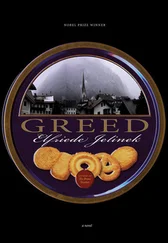At that moment a fresh swarm of workers pour out of the number 5 that has just arrived, into the side streets. Stale and fuggy stairwells suddenly come alive. The mothers of families dive for apartment doors to welcome their breadwinners home. They snatch their shabby briefcases, battered cooking utensils and thermos flasks away from them; or (in the case of Superior People) relieve them of attache cases plus newspapers, remnants of Superior People's trout, greasy paper, etc. And the homecomers change into the down-at-heel socks they wear at home and which until recently they were still wearing to work. These people know what having to scrimp and save is like, even if they don't all need to. You can't always go buying something new if you still have the old thing. The first clips have been administered to children's ears and their ill-treated voices are uplifted in shrill chorus. No, Karli can't go out again today, I said no. Round the corner, in Beserl Park, dogs go for a leisurely prowl in the grass, and crap a little here and there. War invalids, who at one time were out and about in the streets, watch them with interest, thinking of the time when they were still somebody, on enemy territory in a foreign land, somebody they no longer are.
They crack the leads like whips, which makes no impression on the dogs. No one obeys the one-time soldiers any more, nor do they have anyone whose every word they can themselves obey. Authority is unfortunately a thing of the past.
Hans gobbles up several rounds of bread and margarine and checks his quiff in the old shaving mirror which supposedly belonged to his murdered father. Don't get started on your concentration camp stories again, I've had them up to here.
Across the road, the woman who keeps the knitware shop lets the blind half down. Behind it, bending forward, is a customer, still talking about a new pattern. The era of embroidered pictures on every wall is just dawning and will soon be in full swing. Scarcely have people acquired the hard-won bare essentials than they are already starting to think of the unnecessary luxuries. It'd be best if they didn't even trouble to ponder the necessities of life. If you don't have the cash you get your sunshine from things you don't really need. Or else the daily grind is grey.
You haven't been to the group evenings for four weeks. They could use you just now to stick posters up (Mother to Hans). Piss off (Hans to Mother). She treats him to a long quotation from a book, dry as paper.
Till well into the fifties, the situation of the working people was even worse than at the time of the great economic crisis in 1937. This period is considered part of the notorious post-War phase. Productivity was increased, which was tantamount to aggravating exploitation, but at the same time food was in distinctly short supply. At the time when the action of this novel takes place, though, everyone is already much better off and the way is clear for a wirtschaftswunder (a German notion familiar from numerous films featuring kidney-shaped fifties tables and cocktail cabinets, and from numerous blondes with big busts propped aloft in wired C-cups). Everyone hails it with loud cheers of welcome. There are always some people, though, in whom the way is never clear for anything, let alone wonders. They keep on opening their doors, but all that comes in is the cold from outside. Frau Sepp is one of these unfortunates.
In faltering tones she tells her son about that decisive year, 1950, for the umpteenth time. It gets on his nerves. In 1950 she said goodbye to her next-to-last hopes. (Today's emphasis is on Olah's drunken bands bursting into factories, beating, butting and thumping, forcing the strikers to resume work. Olah, commander of the strikebreaking posse, is in the SPO National Assembly, and so on and so forth, blah blah blah.) Frau Sepp overlooks one point: that her son, in inverse proportion to her own hopes, has for some time been nurturing false hopes, hopes which he himself believes to be realistic. Hans is a young, healthy fellow and relies on his fists, just as those Social Democrat officials Probst, Koci and Wrba relied on theirs when they crushed the strikes. Hans has learnt that you don't have to be an official of the beloved workers' party to bash things down, there's a more straightforward way of doing it, and (above all) you can do it solely for yourself. At some point you'll start accumulating a fortune, a fortune which will go on getting bigger and bigger.
It is lighting-up time and the current is surging into the first street lamps. That current was created by Hans single-handed. Not the Almighty. But you've always liked your work, admonishes Mother. There's better things in life, and I know what they are, too, counters Hans briskly.
To think that that is what your father died for. So what, he didn't have to die on my account (Hans).
Imagine there were just one more person here, Mama, you couldn't swing a cat. But Hans, there are people who have more room than they need to live in. There's a cosy little bench in Helenental, and old villas in the Hietzing part of Vienna. Which is where Sophie lives. One way or another I'm going to get in there too, swears Hans. Tenderly he folds up the expensive cashmere pullover and puts on the mended cardigan he's had since childhood. He's looking after things for later (something you have to learn early, because when you're young there's always a later, but when you're old it's all over), and later he'll be saving for later still, so that he has something for that rainy day which hopefully will never come.
Now, as if at a signal, evening cooking commences all over the building, and smells both nasty and pleasant fill the stairwell, settling into the flaking plaster, where they meet old acquaintances for a chat: cabbage and sauerkraut, potatoes and beans. A second shift of clouted kids howl through the doors. Daddy's tired. His nerves are bad. Psst, be quiet, or else his nervous insulation will tear good and proper.
Hans has a vision of glistening china, silver cutlery, and a prevalent muted atmosphere in both actions and words. In tone and bearing you never make a slip, you'd sooner slip your hand into someone else's pocket. Hans has an ideal because he is an adolescent. Adolescence and ideals go hand in hand. What they produce are resolutions involving love, which is always selfless. For which reason you can help yourself to as much as you can get.
Hans reports that Rainer said that in Nature the strong crush the weak. It's logical, isn't it, which of the two I want to be. Who is this Rainer (Mother's uneasy query). You drive me up the wall with your stupid questions, snaps the son cantankerously, and he pushes off, although he hasn't even had anything decent to eat, which is another need that young people have. As so often, potato goulash was on the menu today.
Mother stands there in the darkened room, her back aching from writing, swaddled in the dark and battered furniture about her. Which is an indication that she has achieved nothing in life. Which is her own fault. All of the guilty are perpetrators and all perpetrators are guilty. She is also swaddled in the human tea-cosy of the murdered, the hanged, the gassed, those who were shot and those who had the gold teeth torn from their mouths. Servus, Hansi, sleep well (that was her husband's name and it is also her son's). Her Hans, who is already a grown lad and thus no longer a Hansi, is just leaving the house. A pity Papa couldn't see him grow up. But strangers always mattered more to him than his own family. Now Mama has to watch out on her own. It's tough for a boy if he doesn't have a father, you read this all the time, it doesn't matter so much to a girl. People cleverer than Hansmother have said that, so it must be true. And the sun does not laugh at this because the sun has just tramped off for good. All that is left of the Kochgasse are the bright circles the lamps carve out of the darkness of the houses. That doesn't mean that what you cannot see does not exist. If it is not over and done with, forgiven and forgotten, it is still there. It is still there, the setting for many fates of no particular interest. To avoid all that, Hans is heading off for a more interesting fate, and is wholly absorbed in it.
Читать дальше












